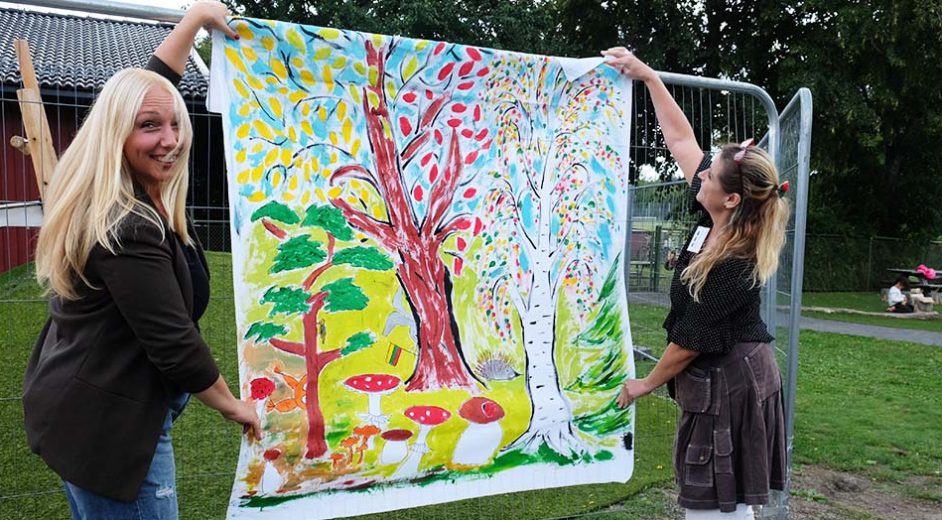Kindergarten Teachers Build Learning Bridges over the Baltic Sea
Four kindergartens from three countries bordering the Baltic Sea have collaborated on a further education and exchange project. The meeting inspired the kindergarten teachers from Sweden, Lithuania and Estonia to develop their own pedagogical praxis and became a cultural eye-opener.
By: Joan Rask, journalist
Inspiration, motivation, skill, and deeply personal experiences. These words are spontaneously spoken when three participants on the Nordplus project “Learning Bridges over the Baltic Sea” tell about their collaborative work. Ruta Zickiene is co-initiator, Lithuanian and a music teacher by training. She has worked in the kindergarten Zinket in Vällingby just outside Stockholm for almost 10 years.
”I experienced how children’s lives could be – with freedom – and I thought ‘that’s how I would have wanted it as a child – that’s the way it’s supposed to be,” says Ruta Zickiene.
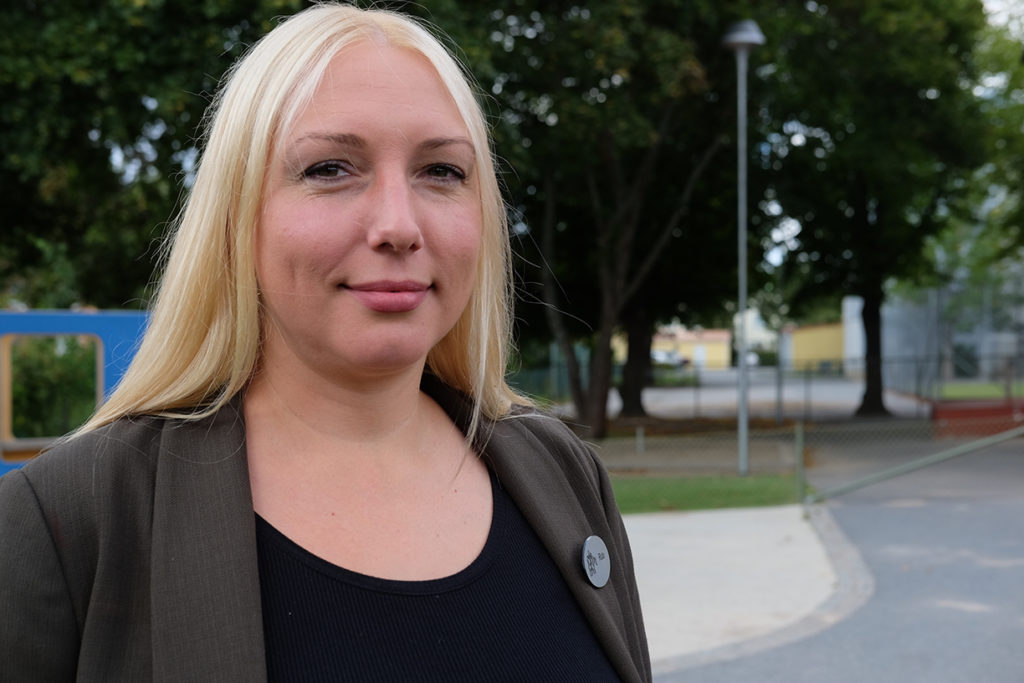
It was during lunch breaks that it actually started. Because what is it like in Lithuania? What do they do? Colleagues posed Ruta these questions over and over again – and she told them. The same thing happened when she was back home in Lithuania.
”My entire family is made up of kindergarten teachers, and they were asking what they do in Sweden? After a few years we decided to do something about it,” she says.
She smiles, move forward in her chair and gestures with her hands as she explains.
”During my childhood we learned an incredible amount about our neighbouring countries, and I was so surprised about how little Swedes know about Lithuania. People think I’m Icelandic, and when I mention Lithuania, they start talking about Riga!” says Ruta Zickiene and points to her blonde hair.
With colleagues and the administration in Sweden, she put into action her thoughts about a Baltic/Swedish further education course focusing on pedagogical inspiration and use of the outside for learning, experiencing and cultural enlightenment. A contact seminar arranged by Nordplus was key in meeting likeminded people. There was namely more people with similar thoughts. One such person was Živilė Nakčiūnienė from the kindergarten at Siauliai Logopedic School in Lithuania.
“We wanted to learn from colleagues in other countries, not from some know-it-all lectures – we wanted to see how simple pedagogues, which we are, work and how they cope with problems on a daily basis,” says Živilė Nakčiūnienė.
It was an old dream come true for the Lithuanian kindergarten,
“To us, the Swedish education system was a mystery, for example, how they do their outdoor kindergarten education. We have read a lot about it and everybody wanted to see how it worked in real life,” explains Živilė Nakčiūnienė.
160 hours of intercultural further education
Exchange was the fulcrum of the project, and in the Lithuanian kindergarten, there was full support from the beginning.
“There is a first time for everything. The trip to Sweden, an international project, collaborating with large institutions. It really was further education, we soaked up the teaching, had lots of discussions on values and it gave a lot of good possibilities and experiences,” she continues.
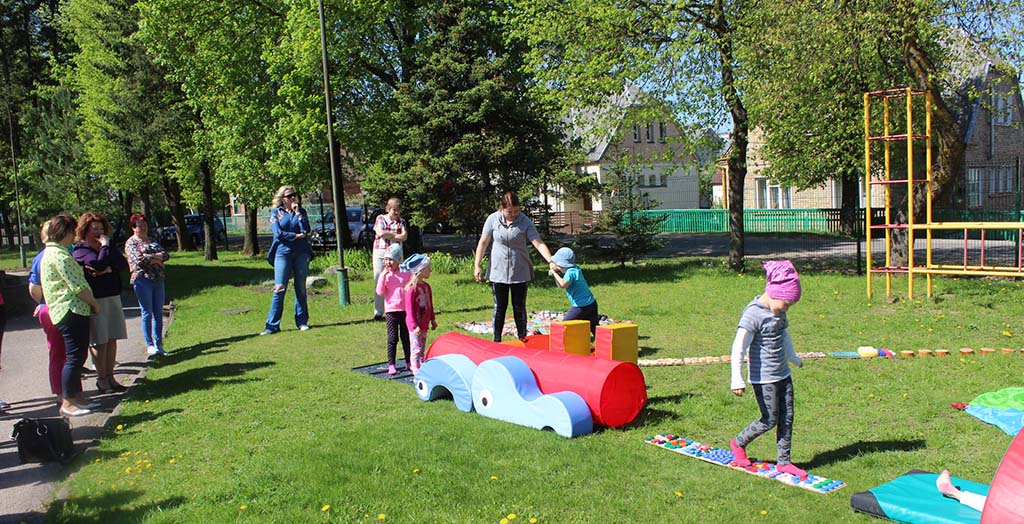
Živilė Nakčiūnienė has calculated that the project amounts to 160 hours of learning, and she is certain that everyone gained new perspectives.
”From our Lithuanian partners in Palanga we got some funny ideas about health education by the seaside, and we learned how to make sensory toys for kids with special needs, and in the kindergarten 'Pongerjas' in Estonia, it was very exciting to learn about how they taught children the basics of robotics,” she explains
She was very surprised that Swedish children are often outside the whole day long even though it is fall or winter. In Lithuania, children are only outside half an hour a day.
“The Swedish kindergarten teachers taught us to teach mathematics, storytelling and languages outside. That was a great experience for us, and they showed us how to do it. You don’t need any special toys. You just use what you find. Some leaves, some stones or some piece of wood. We liked that a lot. When we tried it with our own children and told them that other children, who live far away, like these games, our children were very interested,” she says.
The project ran across a period of two years and was structured around four weeks where the four partners took turns to host. A few central figures participated in every meeting while the rest took turns.
“We envy the Swedish teachers a bit – they have more freedom in their work and not so many regulations and forms. We try to reduce, but there is still a long way,” says Živilė Nakčiūnienė.
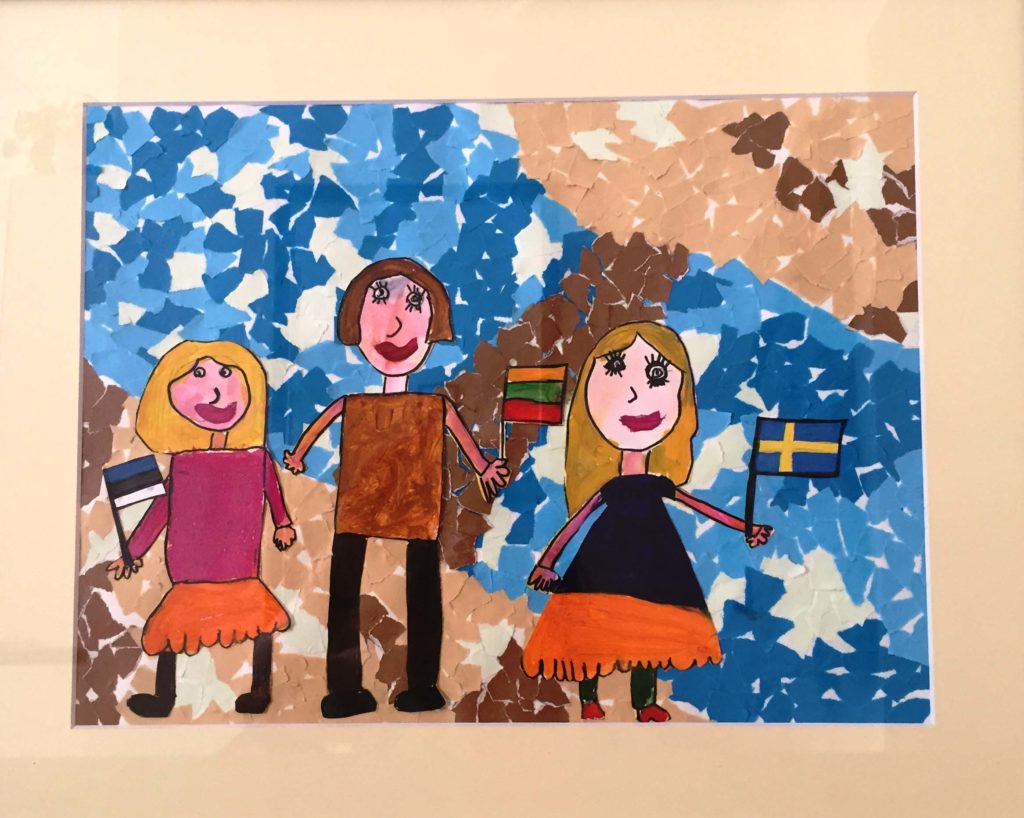
In Vällinby, Ruta Zickiene and her colleague Katharina Sjöqvist can easily draw parallels between the countries. The number of kindergarten teachers per child is for example far lower in the Baltic states, yet they are more active when it comes to playacting, singing, concerts. Even the celebration of the seasons is systematically marked and in the former Russian regions, bilingualism is a basic condition, as all Baltic countries have a significant Russian minority.
”In Narva, which is close to the Russian border, you speak Estonian with the children half of the day and Russian the other half – interculturality really is a basic condition here,” says Katharina Sjöqvist.
A dilemma for a through-and-through Swede
In the kindergarten in Vällingby, there are children with multiple nationalities, and Katharina Sjöqvist is specialised in interculturality, but it was only during the project that she herself understood what it truly means to have no language.
”They forgot about me! There was a competition, and we had to group up, but they kept me out. I didn’t join, I interrupted and I wasn’t able to help because I didn’t understand anything, and the others wanted to win,” says Katharina Sjöqvist.
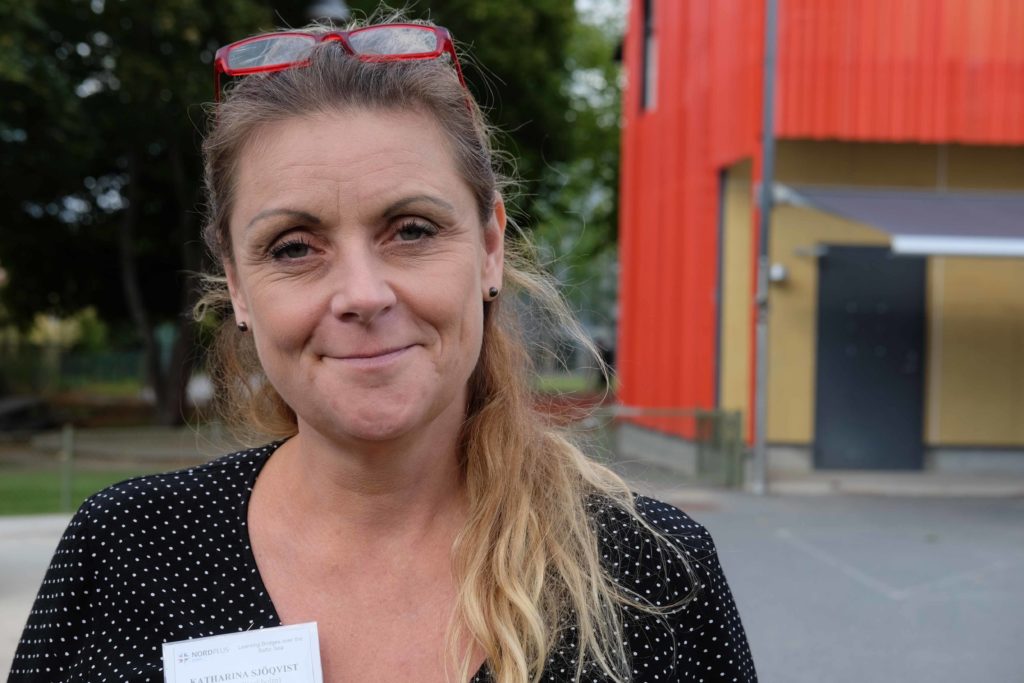
She laughs out loud, wildly gesturing, then running her hand down her costume. She has just performed for the children and is still wearing the skirt.
”We have children here with no language at all. I’m a through-and-through Swede, and now I have a deeper understanding of children who don’t understand Swedish,” she says.
A linguistic challenge
The project faced a linguistic challenge. A majority of the participants had Russian as their second language and did not understand English. Others had English as their second language and did not speak Russian. Ruta Zickiene therefore became the designated translator with a Swedish pedagogue who also spoke Russian.
”At one time it was particularly difficult. People were disappointed. They experienced that ‘the others’ didn’t talk to them. But when you don’t have a shared language, small talk is impossible,” says Ruta Zickiene
The bilingual participants were helpful to Katharina Sjöqvist and the other participants, and they succeeded in dialogue in the end.
”I’m not the same person as before! It has been so impactful to be part of this project. For all of us participants, the distance across the Baltic Sea has certainly decreased,” she says.
She explains that an important effect came about from suddenly having to explain to others everything they typically do on a daily basis in Sweden. It provided the basis for reflection and consideration – and to a great extent, even inspiration to do things differently and improve on things that do not work.
”Us Swedes probably ask the most questions. Why do you do it? What’s the reason behind it? It becomes a little challenging when the Balts couldn’t reply, but that’s part of the culture back from the Soviet time – when something had been decided, that’s the way it was and you didn’t have to understand why,” says Ruta Zickiene.
Midday nap is culture
Among the things making a great impression on the Baltic participants was that the Swedish children have their naps outside in prams even if it is winter – and the Swedes were very surprised when the older Lithuanian children in kindergarten put themselves to bed for their naps. To Ruta Zickiene, the project has been a special kind of journey.
”The Baltic states are so interested in anything Nordic. The project showed them that you can loosen your grip and still get good results. They don’t need annual schedules for everything, and they can let the Russian influence go and instead become increasingly inspired by the Nordic countries,” she says.
Ruta Zickiene herself left Lithuania due to economic reasons.
”I’m passionate about my country and its culture, and I’m grateful for the country which welcomed me. I started off as a nanny and now I’m here,” she says with a big smile forming on her lips.
Following the conclusion of the project, both Ruta Zickiene and Katharina Sjöqvist started on further education. Both wanted a higher level of skill in their work, and they mention that the project offered them the nudge needed to get started.
”The project was about learning objectives – and those we got. You cannot feel it with your hands, but rather on the inside. A lot of us have become more tolerant – we are creative in our work and our professional satisfaction is greater than ever before,” says Katharina Sjöqvist.
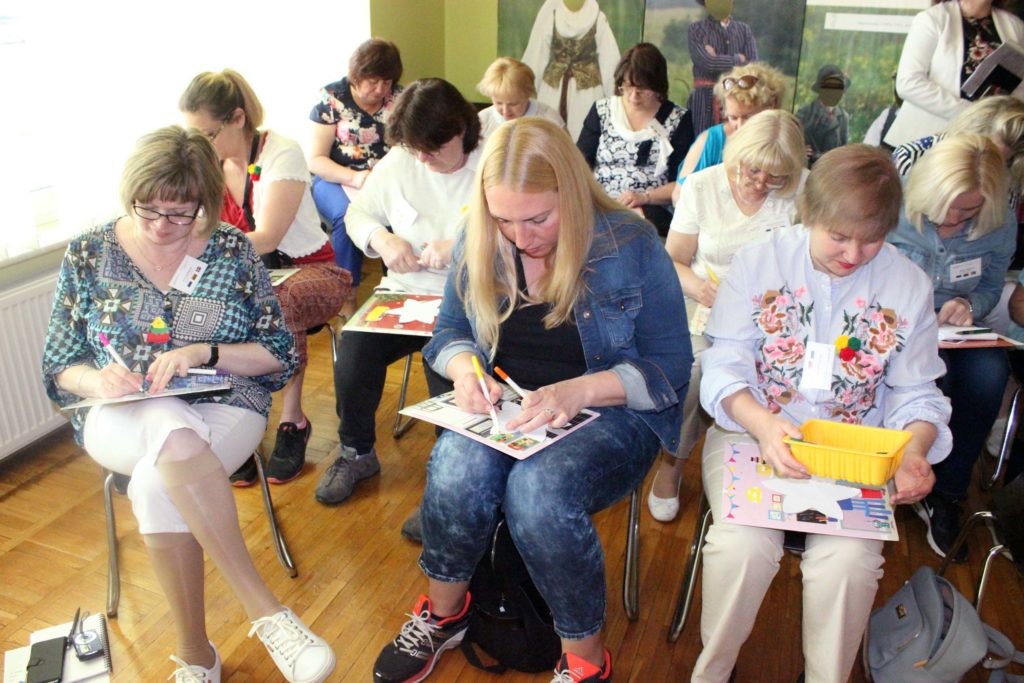
Read the article in Danish: Børnehavepædagoger bygger bro over Østersøen
Coordinating Institution
- Zinket - Kindergarten Vällingby (SE)
Partner Institutions
- Zilvinas (LT)
- Preschool Pongerjas in Narva (EE)
- Siauliai Logopedic School (LT)
Program
- Nordplus Junior
